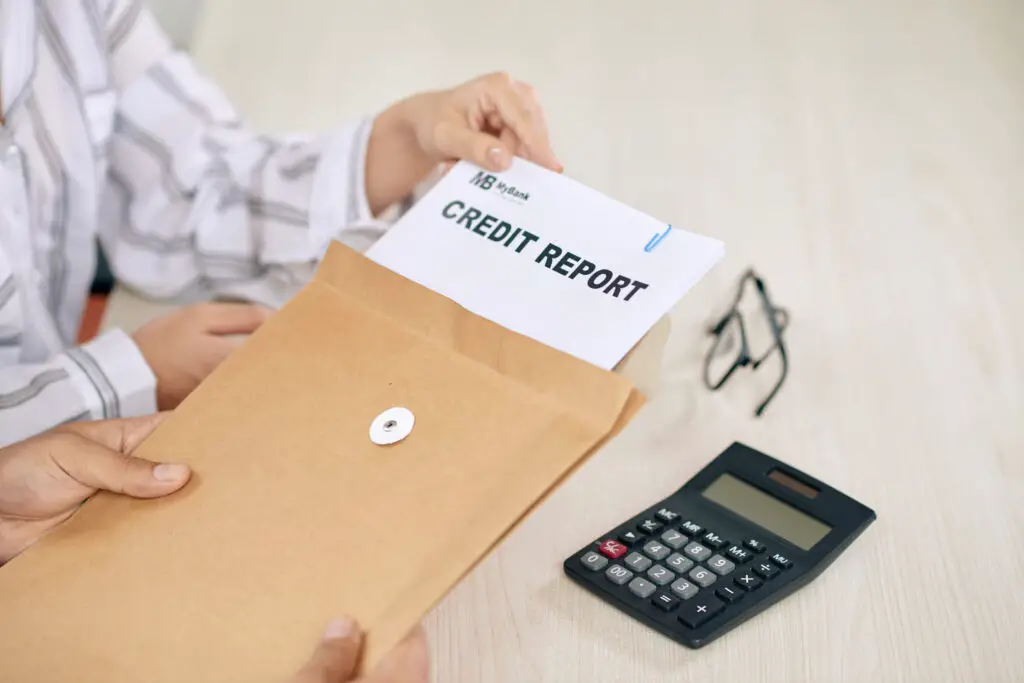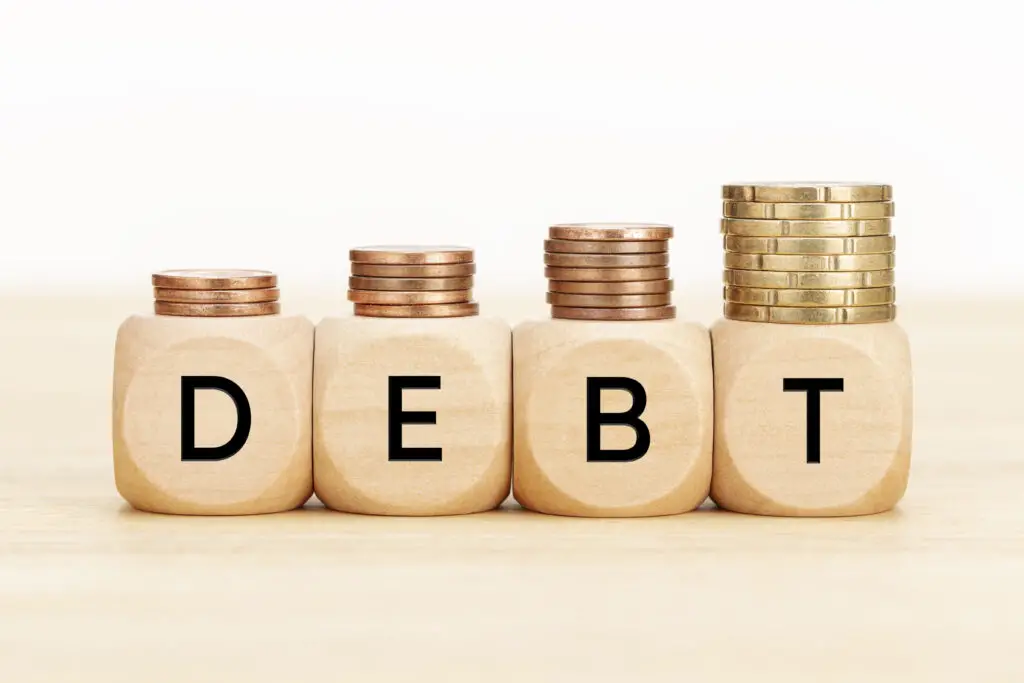How To Fix My Credit And Raise My Credit Score?
Bad credit practices and late payments can result in your credit rating dropping so low that you won’t be able to qualify for a loan or get convenient interest rates. At this point, you might be wondering – how can I fix my credit?
Don’t worry, this article will be your ultimate guide to all the best ways of improving your credit score. We’ll discuss credit repair options that you can do yourself, and whether it’s worth hiring a professional. Join us and learn how to build up and maintain good credit again!
Key Takeaways
- Fixing your credit depends on your credit utilization, credit mix, and payment history as reported to major credit bureaus
- Monitoring your credit reports will help provide insight into listed items and possible disputable entries
- Filing a credit dispute can fix your credit fast in terms of unauthorized credit pulls or incorrect information on the report
- Sticking to the monthly budget with the “50-30-20” rule and clearing any existing debt can be a quick fix
- You can use credit repair companies to fix your credit score, according to your rights based on the Credit Repair Organizations Act
- If you can’t manage to clear the debt on your own, consider getting a debt consolidation loan
What’s A Good Credit Score Range?
Before we get into the details about ways of boosting and fixing your credit, you should know what you aim for.

It’s a hot debate about what a good credit score actually means, and many consumers are troubled by it.
To give you the best idea, we’ll address the good credit score based on a FICO rating scale. It’s the model used by the three major credit bureaus and most of the creditors when determining your creditworthiness.
According to the FICO score scale, here are the main credit score levels:
- FICO 300 to FICO 580- Bad
- FICO 581 to FICO 670- Fair
- FICO 671 to FICO 740- Good
- FICO 741 to FICO 800 – Very good
- FICO 801 to FICO 850 – Exceptional
If you wish to be able to apply for loans at a convenient rate, you should aim for at least a good FICO score level. So, anything in the range of 700 to 740 is desirable, while a credit score beyond that level is impressive.
For example, you stand a good chance of getting approved for a mortgage loan with a low-interest rate if your credit score is near FICO 800.
However, most consumers find it incredibly difficult to climb to this level, especially when having a bad credit score at the start.
It takes some serious work and responsible financial decisions, but we’ll get there together with a few pointers in this guide.
Main Credit Score Determiners
Credit scores are complex evaluations of your creditworthiness, and there’s a set of factors that affect them. Here’s a brief overview of each factor, along with the impact that it makes on your score:
- Credit utilization – The first factor to consider is the credit utilization ratio and it contributes to your FICO score by about 30%.
It represents the amount of revolving credit you are using over all of your credit accounts. To put it simply – if you have a theoretical credit line of $1000 over all accounts, and you are using $500 each month, your credit utilization ratio is 50%.
However, to fix your bad credit score, you’ll have to be using 30% of your credit limit at most. It shows the creditors that you aren’t a risky borrower that uses most of the available credit funds every month.
2. Payment history – One item that we’ll particularly deal with when it comes to fixing your score is payment history. It’s a list of all the payments that can be found on your credit report, regardless if they are timely payments or delinquent ones.
Payment history contributes another 30% to 35% to your FICO score. Late payments can leave a long-term mark on your credit report, therefore preventing you from raising your score.
3. Types of credit – Often referred to as “credit mix”, credit types that you have considerably boost your credit rating. Of course, that doesn’t mean you should constantly apply for new credit.
It’s enough to have a diverse mix of personal loans and other credit products, such as car loans and other types of installment loans.
4. The number of applications – Having been recently approved for a new loan certainly boosts your creditworthiness in the eyes of other creditors.
However, if you send too many loan requests in a short period, it will negatively reflect on your credit reports.
Both the number of inquiries and credit mix add up to your rating of about 10% each.
5. Length of credit – The longer you have credit information on your report, the better it will be for your rating.
That’s why you shouldn’t give up on old credit accounts and close them just yet.
Having proof that your credit history lasts for years will be a good sign for lenders, and it will boost your credit score.
This final aspect adds up to about 15% of your credit history.
Start From Scratch – Obtain Copies Of Your Credit Reports
When fixing a credit score, it’s important to take the process one step at a time. So, the first step is to get a copy of each credit report and compare the listings. You have the right to obtain one copy of your report from all three credit bureaus – Experian, Equifax, and TransUnion.

If you run upon slight differences, it’s not something to worry about. Every bureau uses a slightly different formula and metrics, even though it’s still your FICO score.
Even so, the differences shouldn’t be too great.
If they are, chances are that a company or a creditor has reported suspicious information to one of the bureaus.
There’s always the chance of finding inaccurate information on your credit report.
That’s why it’s so important to take each report and go through it line by line.
Your findings can even make things easier when it comes to fixing your score if you find disputable information.
Dealing With Credit Disputes
There are numerous types of credit information that you might be able to dispute on your credit report.
Maybe your personal information got mixed up, and that’s the reason why there’s an unauthorized listing on the report.
Mistakes happen sometimes, so you might even find a paid account still being listed as a delinquent one. Another type of listing that may harm your credit score is an unauthorized hard pull. Hard pulls or inquiries are detailed credit checks that stay on your report for a while.
That’s why you should always pay attention to these types of credit checks since a hard pull can stay on your report for two years. So, if there has been an unauthorized pull, you can find it and hopefully dispute it.
Fraudulent activities like identity theft can also compromise your reports, and that’s why it’s always worth taking a look at. If you find disputable information on your report, you can send dispute letters to remove it.
Credit Dispute Letters Can Fix Your Credit
If you find disputable information on your report, you can write to a credit bureau that reported it. You should write a credit dispute letter in that case, and provide the bureau with the following information:
- Your identification details
- Account number
- The item you wish to dispute
- Brief explanation
After you file a dispute, the bureau will have 30 days to investigate and check the information with the furnisher. If it proves to be correct, it will stay on your report. However, if you are right, the furnisher needs to provide accurate information to the bureau and it will be changed in your report.
Removing negative information can be an instant boost to your credit score. On the other hand, there’s also the 609 credit dispute letter, and it’s not the same as the regular dispute letter. With this letter, you can request the authentication of the negative listing from the bureau.
The Fair Credit Reporting Act gives you the right to require information clarification from your consumer credit files. You can ask for the source of the information, so you can check the listing yourself, or inquire about the creditors that pulled your credit report recently.
Getting To Know Your Credit Score
Obtaining copies of your credit reports isn’t the same as checking your credit score. While Experian includes a credit score on your report if it’s mailed to you, it’s not the case with all the reports.
Credit reports merely serve to give you an insight into your recorded credit activity. On the other hand, your credit score is the evaluation based on that activity, so it’s checked a bit differently. The good thing is – you can most likely check your credit score with your credit card issuer.
If you have a banking app, you should also be able to view the score by logging into your profile. Once you get to know both your credit score and the reports, you can start building up and fixing your credit.
Best Ways Of Fixing Your Score
Once you are fully prepared to tackle your bad score, you’ll need to apply some payment management and credit repair tactics.
Think about all the things you can do to get positive financial habits reported back to credit reporting agencies.
Here are some of the ways you can fix your credit score and get it back in the good range again:
1. Create A Monthly Budget
To fix bad credit, you’ll need to change your financial routine and the way you manage payments.
You can create a monthly budget and put all the expenses and debt repayments on paper.
Of course, your budget should start with your monthly income and be planned accordingly.
If you are having a hard time creating a financial plan, there’s one useful technique you can apply. The “50-30-20” rule has been regarded by many financial experts as an extremely effective way of planning your budget.
Here’s what it means based on budget percentage:
- Spend 50% of your budget on needs
- Spend 30% of your budget on wants
- Spend 20% on repaying debt
For the sake of conversation, let’s assume you make $2000 per month. The 50-30-20 rule would then lead you to spend $1000 on essentials like food, fuel, utility bills, or rental agreements.
If you have mortgage debt, try to include it in this section of your income as well. On the other hand, you can still spend $600 on things you want to buy like clothes or entertainment. Finally, the $400 should be spent on your debt repayments.
This rule was developed to help consumers plan their budget and the final 20% is intended for savings as well.
However, if you have bad credit, this can just be a financial frame you’ll follow.
You should try to save on entertainment and some needs if possible, and invest more into debt repayments. This way, you can build up and fix your credit.
Pay Off Your Debt First
Even with a solid monthly budget plan, you can’t start boosting your credit if you have existing debt.
There are two common financial techniques recommended by experts.
The first one says you should pay off high-interest debt first, and then make your way through lower debt.
The second method includes paying off lower debt first, and progressively advancing to repaying high-interest debt.
Both approaches can do good for your budget and your credit score, so it’s up to you to decide.
It’s sometimes better for your credit score to repay lower debt installments first since you’ll be able to remove more debt from your credit report.
However, leaving high-interest debt can affect your monthly budget due to the high interest paid. Once you repay your debt, you’ll see an improvement in your credit scores within months.
You can also reach out to the furnisher and ask for a debt repayment plan and negotiate lower interest paid.
It’s not something that always works but surely deserves taking a shot if you have a good reason why you were behind with the payments.
Getting debt out of the way will leave you with a good foundation upon which you can build up your credit score with a planned budget.
2. Extend Your Credit Limits
We already mentioned how the credit utilization ratio affects your credit score. It’s one of the two factors with the greatest influence on your credit scores, so you can use that to your advantage.
If you already created a monthly budget and paid off your credit card debt, you can inquire about the possibility to extend the credit limit. The credit limit is the amount of credit you have at your disposal for the given card.
So, you could use more credit if it’s granted, but that’s not the whole point.
You can keep your expenses the same and since your credit limit is higher, your utilization rate will be lower. It’s a smart move that can greatly influence your rating.
Increasing your limit on a few cards can contribute even more since credit utilization is calculated over all of your credit accounts.
3. Consider The Length Of Your Credit History
Credit history length is another important factor that affects your credit score, so make sure to keep it as long as possible.
You can do this by keeping your oldest accounts open, instead of closing them.
Even if it costs you some APR payments, it’s still worth doing for the benefit of your credit score. Keep at least one old credit account active, to demonstrate your creditworthiness to the lenders.
Consumers with a long history of payments stand a better chance of getting approved for new credit than those with just recent credit accounts.
4. Carefully Use Credit Repair Services
Let’s face it – we are not all financial experts, so it’s perfectly fine if you need some professional help fixing your credit.
However, it’s a tricky move to use credit repair companies to boost your credit yourself.
These companies offer a series of services concerning your credit, including filing disputes in your name, and negotiating with your creditors.
While sometimes they might be able to secure lower interest rates and remove your negative listings from the report, it’s not always the case.
That’s where the Credit Repair Organizations Act comes in handy. Thanks to CROA, you’ll have at least some legal protection against scam companies.
These are more common than you think since they might offer you credit repair services that they can’t fulfill.
Credit repair companies also often guarantee to fix your score, while in reality, there’s no indication that any type of service will truly affect your score.
These credit repair companies are just there for consumers that aren’t that familiar with dispute letters and procedures.
So, the credit repair company will act on your behalf, both with the credit bureaus and with your creditors. Their services can be of great help if you don’t want to risk it trying to deal with unfamiliar forms and communicating with the bureaus yourself.
How Does The Credit Repair Organizations Act Protect Consumers?
The Credit Repair Organization Act helps you repair credit with the help of credit repair companies by ensuring their transparency and legitimacy.
It prevents the credit repair company from overstating its service and offering products with the promise of success that cannot be delivered.
The act ensures truthful service offerings that won’t deceive the consumer. Some of the best credit repair companies won’t try to take as much money from you as possible. Some of them even let you have free consultations and a brief introduction to their services.
That’s why you should be careful with credit repair companies, even with the law on your side. Only contact a credit repair company that’s verifiable, and the same goes for credit counseling agencies.
5. Watch Out For Your History Of Payments
Keeping track of your payment history accounts is vital for fixing your credit score. Even clearing outstanding debts won’t make much of a difference if you miss another payment soon afterward.
That’s why we’ve discussed the benefits of careful budget planning. If you miss a payment, it can stay on your credit reports for 7 years.
Just think about how this affects your possible future creditors. An average credit score drop for a missed payment is around 90 to 110 FICO points.
So, make sure not to miss a payment, or at least have a good reason to explain to the creditor if you do.
In general, a missed payment shouldn’t appear on your credit report until after 30 days of being late from the due date.
However, don’t take any chances and repay as quickly as possible to avoid late payments hurting your credit scores or even having to pay late fees.
6. Don’t Take Any Chances With Hard Credit Checks
There are two types of credit checks that lenders and companies can make on your credit report – soft and hard.
The credit repair process can be even more difficult if you don’t consider the consequences of hard inquiries.
Namely, any hard inquiry can stay on your report for up to 2 years. It lowers your credit score and makes fixing your credit much more difficult. A hard check assumes a complete and detailed scan of your credit report.
It’s usually conducted when you apply for a new credit card or mortgage loan.
Soft checks, on the other hand, won’t be visible on your report, so they can’t hurt your score.
Can You Fix Credit Score Within 30 Days?
Whether by using a credit repair company or by fixing credit yourself, you’ll surely wish to know how fast you can fix your bad credit.
Sadly, it’s extremely hard to repair bad credit within 30 days, since credit scores are updated by changes in your credit report.
So, when there’s a new change reported to credit bureaus by the creditor, the score will be updated, and it’s usually every 30 days or more.
But, you can make some actions to improve your credit score fast, and they will reflect on your credit score as soon as within the next few months.
The fastest way you can fix your credit score is to pay off your credit card balances.
Missed payments result in poor credit, and the same goes for unpaid credit card debt. So, if you can pay for your credit card debts, you can get a fresh start within a month or two.
Another good option for consumers that wish for a quick boost in their credit score is to become authorized users on someone else’s card. If you have a family member with meticulous credit score and credit card payments, you can ask them to put you as an authorized user.
Clearing out any delayed debt payments will also get you started and improve your credit score as soon as within the next credit score update.
You Can Always Try A Debt Consolidation Loan
If you can’t figure out your way around existing debt, you can always use a debt consolidation loan. It’s a personal loan that lets you consolidate debt by using it, so you use one loan to repay several other debts.

However, it can be more convenient this way, since you’ll get one interest rate instead of several different interest rates.
On the other hand, debt consolidation loans come with a debt repayment management plan you can use to find your way out of debt.
There are some downsides to debt consolidation loans as well.
These are mostly bad credit score impacts at first since you will be technically getting another loan. So, you’ll get another hard inquiry listed on your credit report, which isn’t a good thing at the moment.
It’s still worth taking a shot at due to the lower monthly payments you’ll be making with this new loan.
On the other hand, it will boost your credit history as soon as you repay the debt, and it can even lower your utilization in some cases.
If you transfer credit card balances into an installment loan, you’ll be using less of your total credit limit.
Final Thoughts
Ultimately, if you are looking to fix your credit report, this guide gives you all the steps to get started.
It’s not always fast and easy, but as long as you stick to your budget plan and get your monthly payments aligned, you’ll be on the right track within months.
Start by getting free credit reports from each credit reporting agency, and keep track of it as you go.
Sorting out missed payments and making a financial plan not to miss a single payment again is the best way to fix your score.
Frequently Asked Questions (FAQ):
How can I fix a messed-up credit score?
You can fix a messed-up credit score by obtaining free credit reports from the credit bureaus to see the reported information and create a credit repair plan.
It assumes clearing any existing debt, making on-time payments, and disputing any incorrect information to get a fresh start with clean credit history.
Can I pay someone to fix my score?
You can use a credit repair service to fix your credit score, but these companies won’t do miracles in terms of something you can’t do yourself.
Credit repair companies will interact with lenders and credit bureaus to see if they can dispute negative information on your behalf.
They also sometimes negotiate more convenient interest rates, but if they offer anything “guaranteed” and beyond these services, you can rely on Credit Repair Organizations Act for protection.
Is it possible to fix your credit score in 30 days?
It’s not possible to completely fix your credit score in 30 days since credit scores are updated every 30 to 45 days, or when creditors report to a credit bureau.
However, you can apply some positive financial practices in those 30 days which will reflect in a better score afterward.
Can bad credit scores be fixed quickly?
Yes, bad credit scores can be fixed quickly if you rely on information from your credit report and work to establish a positive credit history.
It requires lowering your credit utilization, repaying any existing debt, and removing any inaccurate information from your report.
If you keep making timely payments, you can expect the first results within a few months.



